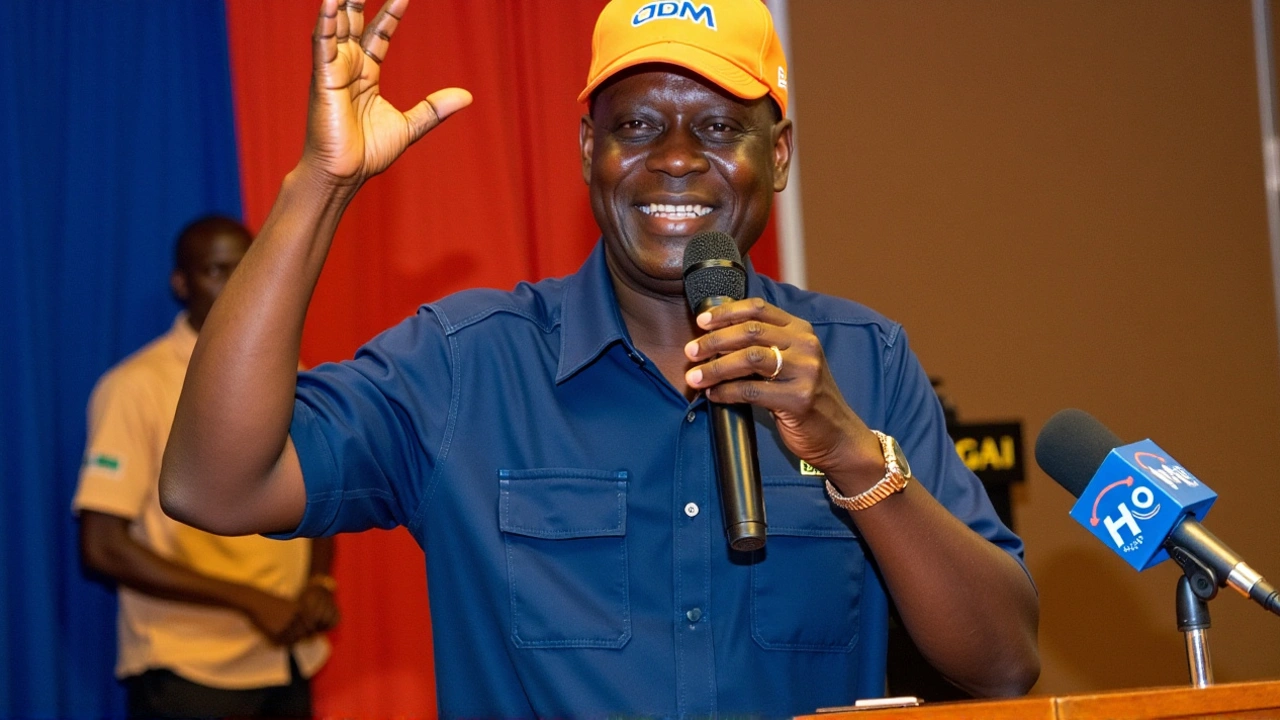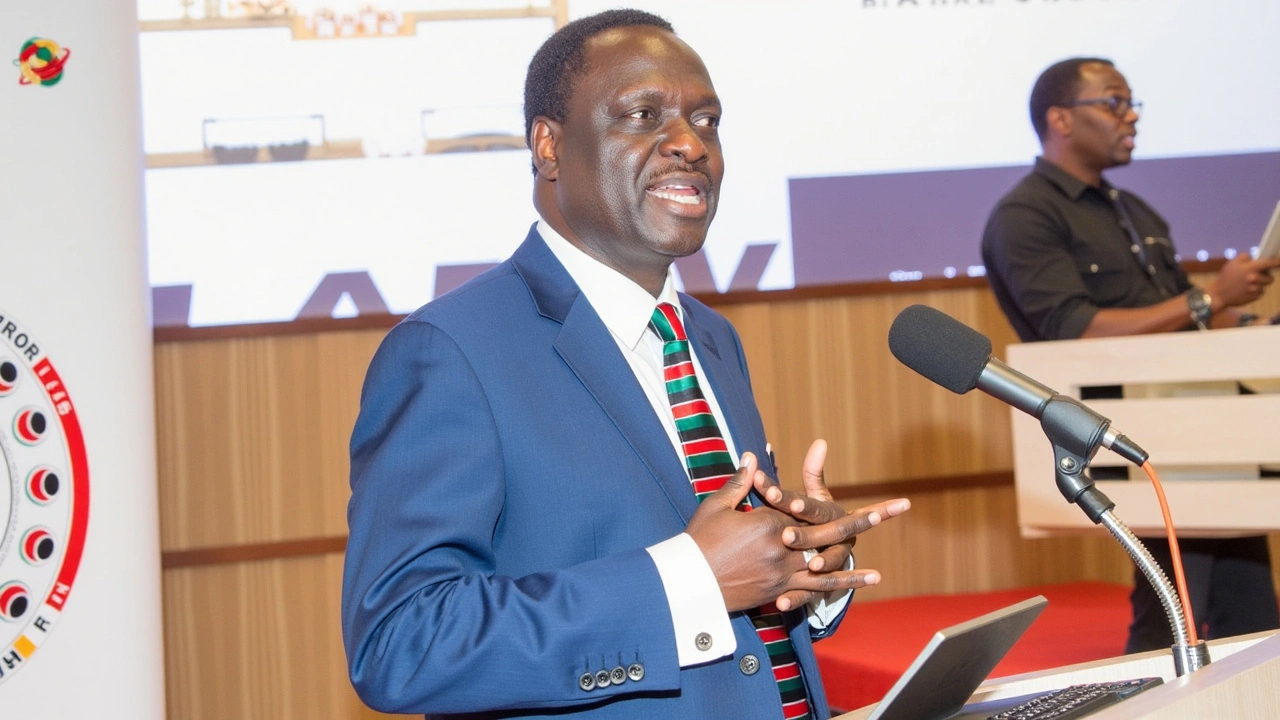Introduction to the Controversy
In recent weeks, the Adani Group, a multinational conglomerate based in India, has been embroiled in controversy regarding its involvement in major infrastructure projects in Kenya. The public outcry emanates largely from the group's leasing of strategic assets such as Jomo Kenyatta International Airport (JKIA) and engagement in energy projects across the nation. While some Kenyans have raised concerns about foreign control over critical national infrastructure, others see potential benefits in the influx of private capital and expertise.
Raila Odinga’s Defense
Former Prime Minister Raila Odinga has stepped firmly into the debate, offering a robust defense of the Adani Group. At a public event in Mombasa, held on Sunday, October 13, Odinga articulated the challenges facing Kenya's economy and the need for strategic alliances to overcome them. He stressed the role of Public-Private Partnerships (PPPs) in attracting investments necessary for economic development, underscoring that the Adani Group, with its established global reputation, is an ideal partner for such initiatives.
Odinga's support for the Adani Group is not without basis. He recounted his introduction to Adani through Indian Prime Minister Narendra Modi, who at the time was the Chief Minister of Gujarat. Since 2010, Adani has expressed interest in investing in Kenya but was reportedly stifled by the absence of a robust legal framework for PPPs. Now, Odinga calls for enhancement in this sector to foster investor confidence while safeguarding national interests, including adherence to labor laws and environmental regulations.
Addressing the Benefits of Public-Private Partnerships
The concept of PPPs is not new to Kenya, yet it remains a critical, albeit contentious, element of its strategic economic development plan. These partnerships aim to blend public control with private efficiency, ideally resulting in infrastructure projects that can be delivered promptly and managed efficiently. Odinga underscored the importance of adapting Kenya's PPP framework, ensuring both national interests are protected and credible investors are not deterred. He cautioned against alienating business partners like Adani, highlighting the potential stalling of essential infrastructure projects vital for Kenya's growth.
Intriguingly, Raila Odinga cited firsthand examples of Adani's transformative projects in India, demonstrating the tangible capabilities of the group. He relayed anecdotes about how Adani turned a Gujarat swamp into a thriving port, power plant, and industrial hub, as well as transformed a faltering Mumbai airport into an apex facility. For Odinga, these examples underscore Adani's capacity to revolutionize infrastructure and foster economic development.
Recent Developments in the Adani-Kenya Partnership
The defense by Odinga coincides with the recent contractual agreement between the Kenyan government and Adani Solutions Limited, a subsidiary of the Adani Group. The Kenyan Energy Ministry, through Cabinet Secretary Opiyo Wandayi, announced a comprehensive power transmission agreement, expected to raise over KSh 95.68 billion through debt and equity to finance the project. This partnership marks a significant milestone in the initiative to enhance key transmission lines across Kenya, aiming to remedy the persistent issue of power blackouts that have plagued the nation.

Conclusion: Balancing Investment and Sovereignty
Odinga's defense of the Adani Group underscores a central dilemma facing Kenya: the challenge of balancing foreign investment with national sovereignty. While strategic international partnerships hold immense potential for infrastructural development and economic progress, they must be carefully negotiated to ensure that Kenya's national interests remain protected. As the conversation on the Adani Group's involvement unfolds, it highlights a broader discussion on foreign investment's role in shaping the future of Kenya's infrastructure landscape.
The call for a robust legal framework for PPPs becomes ever more critical, ensuring that these partnerships mirror mutual benefits and respect for Nigeria's sovereign assets. With advocates like Raila Odinga underscoring their importance, the future of such partnerships looks poised for potential growth but will inevitably necessitate careful navigation through regulatory and public perceptions.


Comments (19)
Adani’s track record in other countries can’t be ignored.
While PPPs have merits, the lack of transparent clauses often leads to public distrust, especially when strategic assets are involved.
Kenya can’t afford to turn down capital simply because of xenophobia; the benefits outweigh the risks.
The synergy between Adani’s logistical expertise and Kenya’s burgeoning demand for reliable power transmission is a textbook case of value‑creation via strategic alliances. Their portfolio demonstrates scalability, which is essential for East Africa’s growth trajectory. Moreover, leveraging their global supply chain reduces procurement costs. It also brings in cutting‑edge technology that local firms may not yet possess. In short, this partnership could fast‑track infrastructural milestones.
It is worth noting that the conversation surrounding foreign investment in critical infrastructure has long been fraught with nuance, and raila odinga’s defense of adani must be viewed through multiple lenses. First, the historical context of kenyan infrastructure development reveals chronic under‑investment, which has stunted economic progress for decades. Second, the financing models that adani brings to the table – a combination of debt and equity – could alleviate the fiscal pressure on the government, allowing funds to be redirected to social sectors. Third, the legal framework for public‑private partnerships, while still evolving, offers a mechanism to protect national interests through well‑crafted clauses on labor standards and environmental safeguards. Fourth, the precedent set by adani’s projects in india – such as the gujarat port transformation – demonstrates tangible outcomes when private expertise is leveraged responsibly. Fifth, there is a geopolitical dimension; stronger ties with india may diversify kenya’s economic partners beyond traditional western donors. Sixth, the potential for technology transfer cannot be overstated; local engineers and technicians stand to gain hands‑on experience with state‑of‑the‑art systems. Seventh, the employment opportunities created during construction and operation phases could bolster local livelihoods. Eighth, community engagement processes, if properly mandated, could ensure that affected populations benefit directly. Ninth, transparency in contract terms is crucial to avoid the pitfalls seen in other nations where foreign entities have over‑reached. Tenth, the role of civil society in monitoring these agreements adds an additional layer of accountability. Eleventh, the strategic importance of the jomo kenyatta airport and energy grids calls for partners who can deliver on time and within budget. Twelfth, adani’s global reputation, while contested, does carry weight in negotiations with multilateral lenders. Thirteenth, the Kenyan government’s willingness to adapt its legal statutes reflects a proactive stance toward modernization. Fourteenth, public perception management through open dialogue can mitigate misinformation. Fifteenth, the long‑term economic multiplier effect of improved infrastructure may outstrip the short‑term sovereignty concerns. Finally, a balanced approach that safeguards kenyan sovereignty while embracing necessary foreign expertise appears to be the most pragmatic path forward.
Looking at the energy transmission agreement, the scale of investment is massive – over ninety‑five billion shillings. That could mean fewer blackouts for households and businesses alike.
From a legal standpoint, clear PPP contracts should include clauses on profit‑sharing, dispute resolution, and environmental impact assessments. This protects both the state and the investor.
We shouldn’t let foreign investors dictate our destiny. Kenya must stay vigilant.
Honestly, this feels like a double‑edged sword 😕 but maybe it’ll work out.
Exciting times! If done right, we could see a new era of growth 🚀.
It’s easy to get caught up in the hype, but we have to keep an eye on labor rights and environmental safeguards. The collaboration could bring in needed expertise, but only if the government enforces standards rigorously.
PPP models need clarity. No hidden fees. Keep it simple.
Supporting the Adani partnership isn’t about abandoning sovereignty; it’s about leveraging global expertise for national development. By ensuring robust contractual safeguards, Kenya can reap economic benefits while protecting its citizens. The key is transparency and accountability throughout the implementation phase. Stakeholder engagement must be genuine, not a box‑checking exercise. If these conditions are met, the partnership could be a win‑win.
yea i think its a gread opporunity if they keep it fair.
Let’s be real: every big deal ends with the foreign firm walking away with the profits, leaving local folks to clean up the mess.
That optimism is nice, but we should also demand clear timelines and penalty clauses so projects don’t stall indefinitely.
All this talk about development ignores how much power consolidation can erode democratic control.
The long‑winded analysis by Jordyn highlights many angles, but let's not forget the practical side: job creation during construction and skills transfer for local workers.
Exactly, and those jobs should come with fair wages and safety standards enforced from day one.